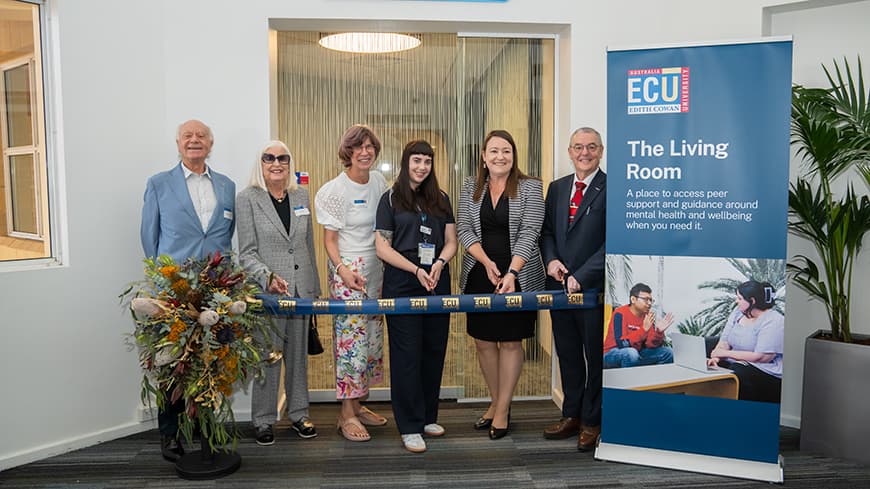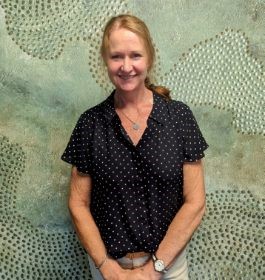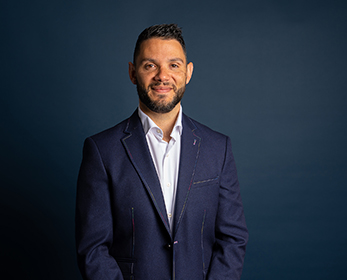'The Living Room' at ECU is a new safe and inclusive space for students to find support in a comfortable and easily accessible way that fits their needs while providing a sense of community belonging.
Student led concept
The concept of The Living Room is designed as a peer-led, early intervention mental health drop-in service. The innovative initiative is based on the successful program, of same name, at UWA, where the emphasis is on sharing conversations with students on their concerns or areas of need.
The space will be staffed by Peer Support Advisors (PSA), who have undergone appropriate training. Located in the Wellbeing Precinct in Building 6 on the Joondalup campus, this service will assist with reducing waiting lists for Psychological Counselling Services (PCS) and may prevent the escalation of mental health crisis.
Crucial work
In opening The Living Room at ECU, Vice-Chancellor Professor Steve Chapman said he was proud to welcome the many guests to celebrate the new student led mental health support service that will fill a crucial gap in current support systems for ECU students.
 VC Professor Steve Chapman addressing guests at the opening of The Living Room at ECU's Joondalup campus
VC Professor Steve Chapman addressing guests at the opening of The Living Room at ECU's Joondalup campus
ECU Elder-In-Residence Dr (Nan) Roma Winmar 'sang guests' in with her beautiful welcome to country, saying she felt emotional to see this kind of support being made available to young people, something she has dedicated much of her own life's work to.
Dr Ronald W. Woss AM, instrumental campaigner and founder of The Living Room concept, was there to tell he and his wife Brigid's moving story of losing their own daughter to suicide at 17 years of age – a tragedy that has motivated both their lifetime’s dedication to providing support to young people experiencing poor mental health.
Dr Woss co-founded the charitable trust Youth Focus in 1994 and is now a passionate advocate for The Living Room initiative to be adopted by universities across WA and nationally so students like his daughter won't feel so alone with their mental health issues.
Critical time of life
Most mental health disorders begin between the early teens to the mid-20s, which often coincides with university and the critical transition period when students are first experiencing academic and financial pressures, isolation, loneliness, and poor self-care.
Professor Chapman said this new inclusive space at ECU was an opportunity to address this pressing issue affecting the core of all our educational institutions—the mental health of our university students.
"The Living Room is about fostering a sense of community, understanding, and non-judgmental assistance, and thus empowerment for ECU students – it is a testament of ECU's commitment to creating an environment where our students not only survive, but thrive, academically and personally," said Professor Chapman.
Hard to reach out
We know that mental health is an ongoing issue in our wider community, for our students it can be debilitating. Recent QILT data indicated that psychological distress among university students in 2020 ranged from high (32%) to remarkably high (39%).
The mental health of university students is not just a statistic; it is a key factor affecting their retention and success. Of particular concern, is that less than one third of students with a mental health condition seek help from formal services, as highlighted by the Orygen report in 2017. [Orygen is led by Executive Director Professor Patrick McGorry AO.]
Professor Chapman said understanding that students not accessing treatment was associated with prolonged disability and poorer mental health outcomes – including a higher risk of suicide – made it imperative for universities to create a campus culture that prioritises student wellbeing and mental health.
Urgent need is being talked about
The recent Australian Universities Accord (2024) and findings from 'Under the Radar' (2017) both emphasise the urgent need to invest in and develop support programs within universities. This extends to catering to the specific needs of international students, Aboriginal and Torres Strait Islander students, and those from lowsocioeconomic status backgrounds or rural areas.
MLA for Joondalup, Ms Emily Hamilton, who said she was honoured to be there at the opening on behalf of the Hon. Amber-Jade Sanderson, Minister for Health and Mental Health, spoke on her passion to see improved mental health support for youth and commended ECU for its commitment.
ECU Senior Lecturer and Mental Health Lead Dr Amanda Cole, who has had a pivotal role in The Living Room at ECU says this initiative differs from traditional university mental health care models in that the space provides a homely environment, no appointments are required, front line staff are peers overseen by a coordinator who is a mental health specialist, and the service model will connect students in need directly to support services, providing a place of safety and belonging for students.
Deputy Vice-Chancellor (Students, Equity and Indigenous) Professor Braden Hill said at ECU, we are widely recognised for our exemplary student support and outstanding student experience. The Living Room only enhances that reputation with a strong focus on mental health and wellbeing. This provides all members of the ECU community to refer students to a supportive, non-stigmatising space where they can receive the support from people who understand their experiences and are trained to support them appropriately.
“The Living Room isn’t just a professional passion for me, it is also important to me personally. I lost a family member to mental health challenges while they were pursuing their university degree. An initiative like The Living Room would have been so helpful to them throughout their journey,” Braden shared.
Collaborative creation
Professor Chapman then introduced Living Room Peer Support Advisor and ECU Student Larissa Sharman, who is studying her the Bachelor of Psychology (Honours). Larissa talked with pride about her involvement with The Living Room since its soft launch a month ago, saying she had already seen and felt a real impact in working with students in the space.
"Our ECU student peer--support advisors, with their diverse cultural backgrounds and varied life experiences, are in a unique position to understand and address the complex and multifaceted nature of mental health challenges – they are really quite remarkable, and I thank them for without them this project wouldn’t be possible," said Professor Chapman.
Professor Chapman made several acknowledgements of those who without their efforts The Living Room at ECU would not have been possible.
"To each one of you who has played a part in this journey, I extend my deepest gratitude. Your contributions have not gone unnoticed, and it is because of your dedication that we stand here today, poised to make a meaningful impact on the lives of our students:
- UWA and their generosity in the sharing of The Living Room blueprint, which has enabled ECU to model our version. This includes key staff at UWA, led by Lisa Goldacre, Director of Student Life, and her team, who developed the operating model for the UWA Living Room and for their sharing of information and lessons learned in collaboration with our ECU team – thank you.
- The ECU Living Room Leadership team: Professor Braden Hill, Michelle Rogers, Dr. Fiona Navin, and Dr. Amanda Cole – your dedication and leadership have been nothing short of exemplary, with the Student Mental Health reference group.
- Thank you to ECU's Building and Services team who have built a truly beautiful space.
- And thank you Ronald and Brigid Woss for the work you do and for being such good friends of ECU.
ECU City Vision
"I am also pleased to share with you that the same approach is now being taken at our ECU City campus, which is currently under construction in the heart of the Perth CBD and on track to open to students in semester one, 2026," said Professor Chapman.
"The Living Room at ECU City will be built on the same principles as the Joondalup campus Living Room – a warm, welcoming, and inviting space for students to access support when they need it.
"The space will be accessible and welcoming with an adjoining an outdoor wellbeing terrace for students to seek peer-led support."
 Dr Ron and Brigid Woss, Dr Sophie Davison, ECU Student Peer Support Advisor Larissa Shaman, Emily Hamilton MLA, and VC Professor Steve Chapman cut the ribbon to officially open The Living Room.
Dr Ron and Brigid Woss, Dr Sophie Davison, ECU Student Peer Support Advisor Larissa Shaman, Emily Hamilton MLA, and VC Professor Steve Chapman cut the ribbon to officially open The Living Room.
Room to be real
Guests were invited to tour The Living Room in small groups, and chat with the student peer mentors on how the facility operates and how the experience has really been so far.
The Living Room not only acknowledges the importance of cultural sensitivity but actively incorporates it into its approach, recognising that the right to mental health is experienced and expressed differently across diverse backgrounds.
The Living Room will operate alongside ECU Health Service and Psychological Counselling Support in what is to become the new Wellbeing Precinct at the Joondalup Campus. The connection of the three services will assist students in managing their physical and mental wellbeing.

 ECU team Dr Fiona Navin, Paul Przytula, Dr Braden Hill, Michelle Rogers and Dr Amanda Cole celebrating the opening of The Living Room at ECU.
ECU team Dr Fiona Navin, Paul Przytula, Dr Braden Hill, Michelle Rogers and Dr Amanda Cole celebrating the opening of The Living Room at ECU.





